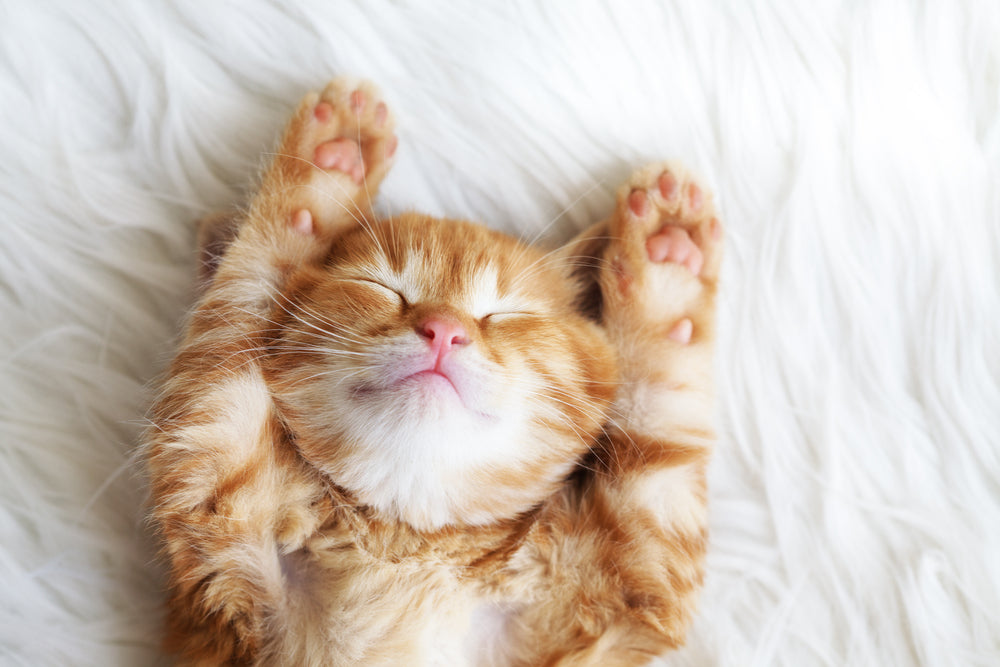In this article, we unravel one of the mysteries of cats: their sleeping habits. Does your cat sleep a lot during the day, or is your cat full of boundless energy? Keep reading to find out if your cat’s sleeping habits are those of a normal, healthy cat or whether you might want to visit the vet.
How Long Do Cats Sleep per Day?
Don’t be surprised if you find your cat sleeping through most of the day. On average, cats sleep around 16 hours per day. All that beauty sleep isn’t only to keep them looking cute; it’s to refuel all the energy they use up while awake. Most cats like to go out on adventures and get into mischief, which all comes at a cost — lots of much-needed sleep.
My Cat Sleeps All Day: Are They Okay?
Most cats sleep for extended periods each day, so normally there is nothing to worry about. The only time you should feel any concern about your cat’s sleeping pattern is when it changes significantly.
If your cat starts sleeping a lot more or a lot less than usual, then there could be an underlying health condition. If this happens, the best thing to do is get your cat checked over by a vet.
Cats Making Noise in Sleep: Is It Normal?
Sometimes when your cat is sleeping, you may notice them twitch, stretch, snore or even make unusual noises. This isn’t normally something to worry about. When your cat does this, it is because they are in deep sleep, known as REM. These movements are due to your cat moving about in their dream, probably getting up to more mischief.
Where Should My Cat Sleep?
Cats aren’t normally too fussy about where they sleep. As long as the area is warm, comfortable and safe, they will be happy to rest there. However, you could make things extra cosy — for example, there are igloo beds and hammocks for radiators, or you could build a den for your feline out of a cardboard box and put a soft blanket inside.
Medical Conditions That Can Impact Your Cat’s Sleep
Many health factors can affect your cat’s sleep. Some of these factors are secondary, meaning another underlying problem affects their sleep; other factors, however, are primary, meaning the disorder is the problem itself.
Sleep Apnea
Sleep apnea is a common sleeping condition for both humans and animals that happens when breathing temporarily pauses. Sleep apnea typically occurs in deep (REM) sleep. Sleep apnea is rarely anything to worry about, but if it becomes continual and worsens, it is best to check in with a vet. Some important aspects to keep in mind:
- Sleep apnea can develop and worsen over time.
- The most common symptom of sleep apnea is snoring.
- Sleep apnea is commonly found in Persian cats because of their short muzzles.
- Overweight cats are also more prone to getting sleep apnea.
Restlessness and Insomnia
Cats commonly sleep through the day, and by night, they are roaming around, playing with toys, searching for food and wandering around. But this is all part of their nocturnal nature.
But if the restlessness continues, and your cat keeps trying to get your attention, meowing or crying, then it’s a good idea to take them to the vet to see if there is a problem.
If your vet recommends medication to treat your cat, we can take your prescriptions online and get your medicine sent to you right away.
